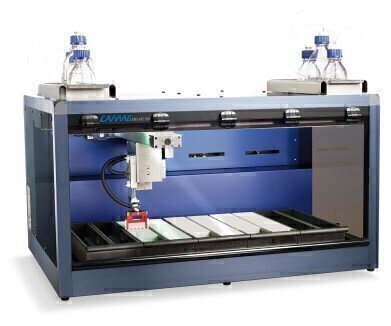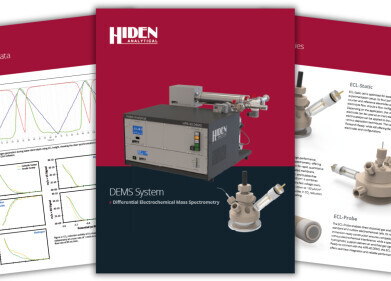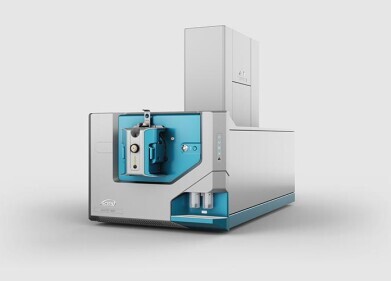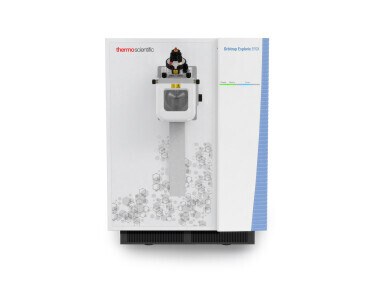-
 CAMAG DBS-MS 500 extraction system.
CAMAG DBS-MS 500 extraction system.
Mass spectrometry & spectroscopy
CAMAG DBS-MS 500 - Fully automated online extraction system for LC-MS, MS or Sample Collector coupling
Jul 11 2016
Dried blood spot (DBS) sampling has been used for more than five decades to screen newborns for metabolic diseases. Requiring a few blood spots only, these are placed and dried on filter paper.
As the method shows strong advantages compared to the conventional collection and analysis of blood or plasma samples the usage of dried blood spots has gained increasing importance in recent years. Among others, these include minimal blood volume requirements, ease of transport, and sample stability. At ambient temperatures or under refrigeration, dried blood spots are stable for years. These qualities of dried blood spot sampling lead to a simplification of the entire blood collection process and a significant reduction of the costs involved.
Prior to the analysis, the dried blood samples need to be eluted from the DBS card. Until today, this was a major drawback of DBS since sample extraction from large amounts of DBS cards was highly labor-intensive and required many process steps to be performed manually. Semi-automated solutions available may change the workflow, but still punching is required and high-throughput efficiency is not achieved. The fully automated DBS-MS 500 extraction system makes DBS analysis remarkably easy and has major advantages compared to both the manual and semi-automated punching techniques.
The DBS are directly eluted in a designed extraction chamber and guided online to an analysis system. Sample processing is automated, including the application of an internal standard through a high precision sprayer and barcode assignment. In addition to the analysis results, an image of each DBS card before and after extraction and the run parameters are reported to maintain high traceability and quality assurance. With the sophisticated master software Chronos, the DBS-MS 500 is controlled and your analytical system is managed. Chronos is compatible with the majority of common mass spectrometers and allows for data exchange between the DBS-MS 500 and your MS. The software allows for sample list programming, where sample processing, extraction and analysis parameters are brought together.
The fully automated DBS-MS 500 is state-of-the-art technology to analyse DBS and offers a highly economical alternative to conventional dried blood spot extraction procedures. The applications of fully automated DBS analysis today reach far further than newborn screening where it was originally intended for. Additionally therapeutic drug monitoring (TDM) is a major field for the DBS technology, since drawing blood samples can be performed by the patients themselves and it is minimally invasive. Samples can be shipped to centralised laboratories via the standard mail delivery. For those reasons DBS is also applied in clinical studies. Furthermore, in preclinical studies the number of test animals can be reduced (due to the need for lower blood volumes) which is in accordance with the 3R requirement of animal studies (replacement, reduction, refinement). Personalised healthcare analysis of metabolites via automated DBS analysis is more affordable for the end user and represents a growing market. Regulated substance testing is performed via DBS as well.
Key features
- High throughput analysis of up to 500 DBS cards per run
- Integrated optical card recognition and barcode reading module
- Automated internal standard application module
- Unique extraction module with wash station to eliminate carry-over
- Online coupling to analysis system (MS, LC-MS or Sample Collector)
- Full control through Chronos software.
Digital Edition
Lab Asia Dec 2025
December 2025
Chromatography Articles- Cutting-edge sample preparation tools help laboratories to stay ahead of the curveMass Spectrometry & Spectroscopy Articles- Unlocking the complexity of metabolomics: Pushi...
View all digital editions
Events
Jan 21 2026 Tokyo, Japan
Jan 28 2026 Tokyo, Japan
Jan 29 2026 New Delhi, India
Feb 07 2026 Boston, MA, USA
Asia Pharma Expo/Asia Lab Expo
Feb 12 2026 Dhaka, Bangladesh


















